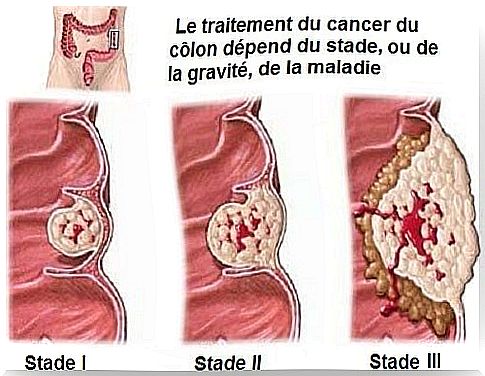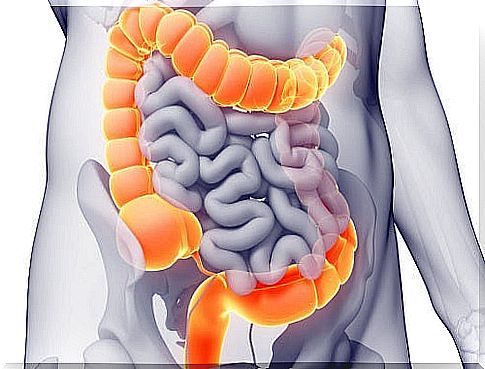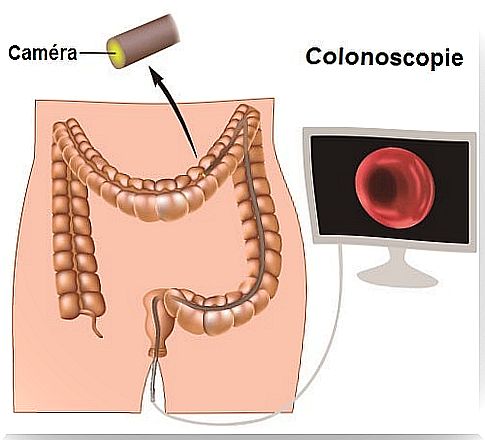What You Need To Know About Colon Cancer
For people over 50, it is recommended to have an annual check-up to detect signs of colon cancer in time. A healthy lifestyle is the best way to prevent it.

Colon cancer is an increasingly common disease and that is why it is worth knowing some of its characteristics in order to avoid it or treat it in time.
It is the most serious of the diseases that affect this organ. That is why it is important to know everything about colon cancer. In this article, we will guide you.
Colorectal cancer is one of the leading causes of death in adults in Western countries. Early diagnosis can allow complete recovery. Colon cancers start on the lining of this organ and the rectum.
What are the causes of colon cancer?
There is no single cause for this disease. Most patients first have mild polyps that turn into cancer if left untreated or stopped in their growth. The people who are most at risk of developing colon cancer are:
- Over 60
- African-American or Eastern European origin
- Heavy consumers of red or processed meat
- Colorectal polyps
- Inflammatory bowel disease such as ulcerative colitis or Crohn’s disease
- Patients who have a family history (especially if they have had cases of familial adenomatous polyposis)
- Diet high in fat and low in fiber
- Smokers or heavy drinkers
- Obese or overweight people
Cancer of the large intestine or colon is the second in terms of mortality in Europe. It is more common in men than in women.
When polyps do appear on the colon, only 10% of them turn into cancer, but it is important not to let time pass and to treat yourself properly.

What are the symptoms of colon cancer?
This can vary depending on the location of the tumor in the intestine in the colon:
- Left: blood in the stool, diarrhea and constipation, the feeling of complete evacuation.
- Transverse: pain, obstruction, colic-like pain, vomiting and abdominal distension.
- Right: internal or occult hemorrhage, chronic anemia, fatigue, pallor, lack of strength.
In all cases, colon cancer can cause loss of appetite, drastic weight reduction, fever, chronic fatigue, tenderness and pain in the lowered part of the abdomen as well as small bowel movements. .
How is colon cancer detected?
Medical exams are what determine whether or not a person has colon cancer (or the predecessor polyps). The doctor puts pressure on the abdominal area, as well as a rectal exam to reveal any protrusions in the area.
Likewise, a stool blood test can detect the presence of blood, which could suggest that it is colon cancer. Even if other diseases could be at the origin.
Further comprehensive blood tests are needed to find out if the person has anemia or problems with liver function.
The test that allows you to see the entire intestine and to safely determine if there is cancer or polyps is a colonoscopy.
With this examination, the entire intestinal tube is observed and samples that may be suspicious are extracted for subsequent analysis. If the lesions do not allow this element to pass, an opaque enema is performed to see the appearance of the colon on the x-rays.

If colon cancer is diagnosed, further tests will be needed to see if the tumor has spread and to determine the extent of the disease, using digital tomograms or magnetic resonances on the abdomen and in the lower belly area.
There are five states of colon cancer:
- 0: it is nascent, on the outer layer of the intestine
- I: on the inner layers of the colon
- II: it has spread through the walls of the colon
- III: cancer of the lymph nodes has happened
- IV: cancer has spread to other organs (metastasizes)
Treatment depends on several factors, such as the stage in which the disease is detected. From the smallest to the largest surgery (colectomy) to root out cancer cells. Chemotherapy to destroy cancer cells and radiation therapy to destroy cancerous tissue.
Colon cancer is curable if caught and treated in time. In addition, the prognosis will depend on the age of the patient, his immune system, the stage in which the treatment was started etc. If after five years of treatment the cancer has disappeared, that means the patient is being treated.
Early diagnosis and prevention of colon cancer
There are different programs to detect this cancer in time, since at the beginning the symptoms can be confused with other pathologies. It is recommended that people over 50 take a stool test for occult blood once a year.
The measurement should be greater if there is a family history of cancer. In this case, include a preventive endoscopy from the age of 40.
If the results are negative, they should be repeated every two years. If they are positive, a colonoscopy should be performed as previously indicated.
Regarding prevention, studies indicate that changing your diet and living a healthier lifestyle can significantly reduce the onset of colon cancer. A diet low in fat and red meats, but high in fiber, lowers your risk.
On the other hand, it is important to go to the doctor as soon as you start to suffer from certain symptoms related to stool evacuation.









